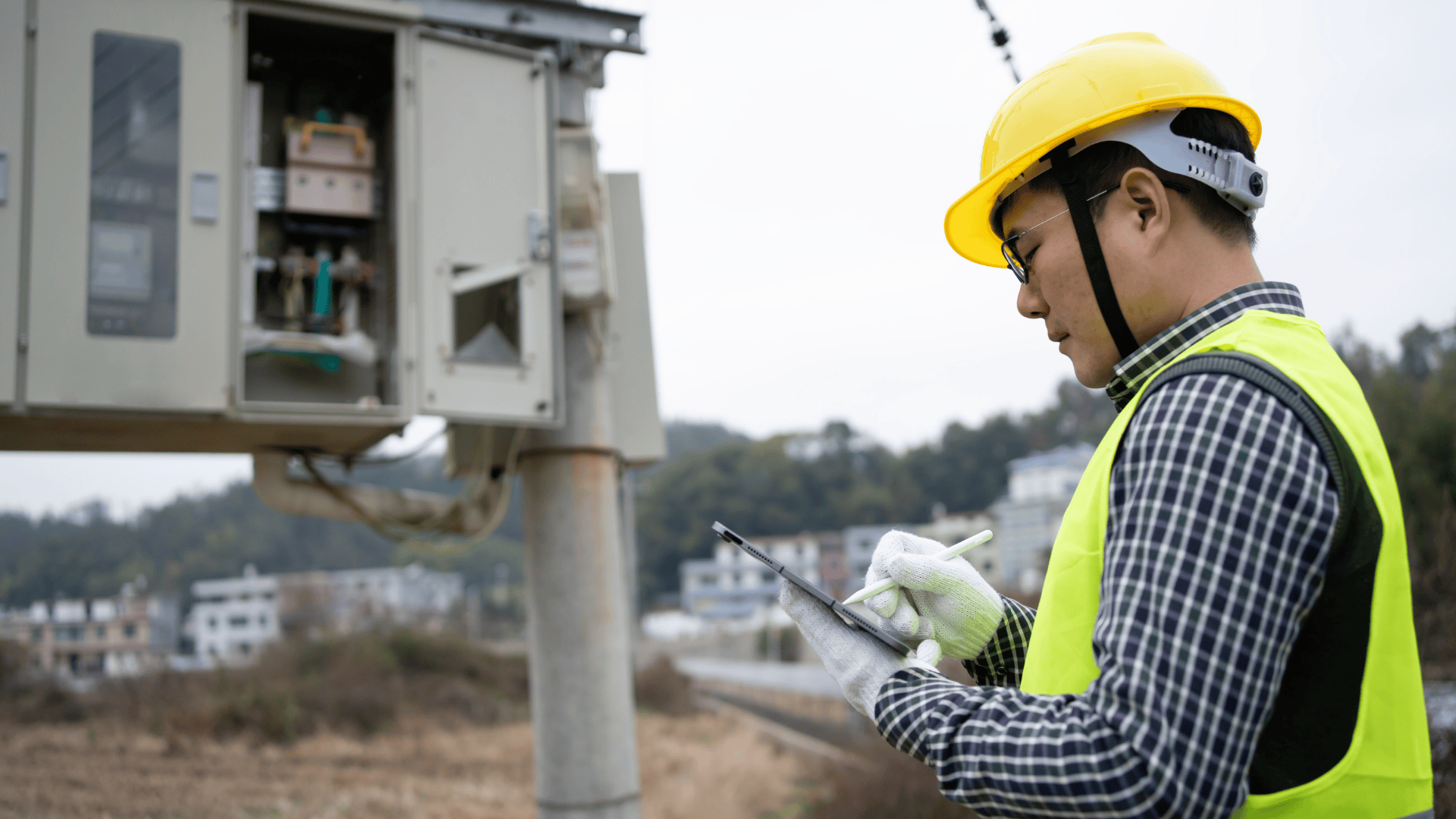Every construction project comes with its own shambles, and that's no breaking news.
- Initially, you manage bids, permits, and deadlines.
- During execution, you coordinate teams, manage changes, and ensure alignment across job sites.
- At project closeout, you track punch lists, finish inspections, and handle paperwork.
Construction workflows can easily become chaotic, leaving one wondering, "Will this cycle ever end?"
So what's the solution? Adopting a CRM that's built for Construction! Let's find out more in detail!
Key Takeaways
- The hidden costs of chaotic construction workflows include siloed teams, communication issues, manual processes, resource allocation complexities, client frustrations, and reputation risks.
- A good construction CRM manages every aspect of your project, from planning and execution to all stages in between.
- Constructionbase CRM goes beyond merely supporting your projects; it's designed to drive them ahead!
Digging the Hidden Cost of Chaotic Construction Workflows
Many of the costs remain hidden in the construction industry. Although they may not be visible on paper, they do exist.
> The Problem: Why Traditional Methods Fail

1. Siloed Teams and Communication Breakdowns
When information remains trapped in email chains or solely in someone's mind, your project faces not only delays but also surprising costs.
Every hour spent tracking down information is an hour not spent building.
2. Manual Processes Draining Productivity
A McKinsey Global Institute study found that just 39% of employees' time is dedicated to tasks specific to their roles.
What about the other 61%? They are bogged down by emails, hunting for lost files, or coordinating with colleagues. Result: Their productivity remains low!
3. Resource Allocation Complexities
What happens when resource allocation gets messed up?
A lack of visibility into resource availability can lead to overbooking workers, underusing assets, or running out of supplies mid-project. This can mess up everyone's entire schedule!
4. Client Frustrations and Reputation Risks
Here's where the client's expression says it all: they're losing confidence with each passing moment.
Failing to meet a client's expectations can result in payment conflicts, rising change orders, and a damaged reputation.
And the importance of reputation in the construction industry: future contracts.
> The only Solution: CONSTRUCTION CRM
The reality is simple: Relying on outdated methods is a risk you cannot take.
Siloed teams? Manual processes? Resource chaos? Angry clients? A CRM can fix all these hidden costs at once!
So, investing in Construction CRM software not only simplifies operations but also lays the groundwork for lasting success.
Wondering how one tool can make this happen?
> Understanding Construction CRM: Beyond Basic Customer Management
The construction sector has traditionally been slow to embrace digital technologies, often limiting itself to basic project management software.
A CRM designed for contractors streamlines lead tracking, organizes customer data, and facilitates job progress without unnecessary back-and-forth. The right system minimizes wasted time, increases bid success, and ensures your team stays aligned.
As a result, a Customer Relationship Management system is a pillar of support for anyone dedicated to expanding their business!
> Why is it a non-negotiable?
If you lack a tool to keep your customers engaged today, they will eventually turn to your competitors. Believe it or not, spreadsheets and traditional methods are the biggest rivals to the construction business.
The construction industry depends heavily on relationships built over long periods, often years and decades.
Did you know?
Over 70% of a general contractor’s projects are usually derived from repeat clients, making it an indispensable tool.
Read our blog to discover the Hidden Advantages of Construction CRM in the Construction Industry.
Stage-by-Stage: How CRM Tools Streamline Construction Workflows

Each phase of the project brings its unique challenges, which involve coordinating people, strategies, and workflows in a dynamic environment. That’s where an advanced Construction CRM becomes your behind-the-scenes project manager, ensuring all moving parts are aligned and deadlines met.
Let’s walk through how CRM tools help you at every stage:
Stage 1: Pre-Construction Phase: Smarter Planning from Day One
This is the beginning of a new journey… and also where chaos often begins. See how CRM handles it well!
> Lead Management and Client Communication
Think about your current manual process: a potential client calls, and you jot down notes on whatever is nearby. Maybe those notes make it into a spreadsheet later, if you remember. Maybe they don't.
The CRM Fix:
- Automated lead scoring identifies the best prospects.
- Centralized client profiles capture all interactions, so you never forget a detail, such as who to remind at their best times of day.
> Bid and Estimate Management
Estimating is the stage where profits are made or lost before breaking ground. You miss out on one single detail = you miss out on profit!
The CRM Fix:
- Utilizing templates and your historical data to generate more accurate estimates.
- Collaboration tools allow real-time estimate editing, enabling quick adjustments for modifications.
- Delivering professional-looking proposals that win more jobs.
> Automated follow-ups and status tracking
The most common scenario: Has the client approved the proposal? You check the inbox and find endless unread emails. The answer? Possibly. This is where automation comes in handy!
The CRM Fix:
- Gentle auto-reminders for clients to sign contracts.
- Keeps track of which proposals are pending, accepted, or need revision.
> Statistical Highlight:
CRM systems help construction firms improve conversion rates by up to 30%, streamlining lead management to focus on valuable prospects. (Source)
Stage 2: Construction Phase: Aligning Teams and Expectations
This is where the real construction begins, and things can take a turn unexpectedly if you're not attentive. But when you have a CRM in place, subcontractors will no longer arrive to discover that the site isn't ready (because it is ready).
Let's see how!
> Centralized Communication Hub
The issue arises when your architect uses Slack, while the plumber and the client only check WhatsApp and email. So, how about putting everything on one track?
Everyone sees the same information, at the same time, in one place.
The CRM Fix:
- All documents, messages, and updates are stored in one place.
- Subcontractors, clients, and your team can instantly access the latest plans.
- Version control prevents anyone from working with outdated blueprints.
> Progress Management and Task Automation
Do you recall the satisfaction of checking items off a to-do list? Now, multiply that by a hundred. You probably wouldn't want to do it manually again.
The CRM Fix:
- Gantt charts visualize timelines (now you know where your project stands!).
- Automated reminders notify teams as deadlines approach.
- Progress dashboards provide clients with real-time updates, so they stop bombarding you with “How’s it going?” messages.
> Planning and Resource Allocation
Poor resource management results in idle workers, rushed deliveries, and excess overtime, all of which erode profit margins. When things don't go as planned, it strains relationships with subcontractors and suppliers. Want to know who's where and when!
The CRM Fix:
- Resource dashboards help monitor equipment and labor.
- It helps in scheduling crews and balancing workloads according to their real-time availability.
> Mobile Accessibility for Field Teams
Every contractor wants real-time clarity, even on the most remote job sites. But in reality, your foreman’s “office” is a pickup truck with unreliable Wi-Fi.
The CRM Fix:
- Update progress from the job site.
- Access documents offline.
- Upload photos of issues and get instant clarification.
In a nutshell: No Wi-Fi? Relax! Work offline and sync when you're back in range.
> Integration Keeps Everyone in Sync
Your CRM isn’t an isolated island. It's time to build a bridge connecting it to tools like QuickBooks, Procore, or Slack.
The CRM Fix:
- Easily create and send proposals directly from the app.
- Automatically sync budgets and invoices.
- Eliminate double data entry (now you have extra hours + peace of mind).
- Ensures smooth collaboration between all platforms.
Outcome: Eliminate the “left hand unaware of the right hand's actions” phenomenon.
> Statistical Highlight:
While 79% of customers want consistent interactions across departments, 55% feel they primarily engage with isolated departments rather than a single company.
56% of customers report frequently needing to repeat or clarify information to various representatives. A CRM prevents this from happening in the first place! (Source)
Stage 3: Post-Construction Phase: Wrapping It Up, Right
Now, this is the stage where construction is complete, but it doesn't end with the ribbon-cutting. Although the building may be finished, your relationship with the client and the project is not. But the CRM handles this as well, see how!
> Punch List and Inspection Management
The final stage of a project can be the most frustrating part. CRM tools turn punch list management from disorganized notes and overlooked tasks into a structured process.
The CRM Fix:
- Items are captured and recorded properly.
- Accountable parties are automatically notified.
- Completion is verified and documented.
> Client Feedback and Retention
Don’t let the relationship end with the invoice, because your past and present customers are your ultimate future customers.
The CRM Fix:
- Send automated surveys to measure satisfaction with your work.
- Record feedback for future projects.
- Schedule check-ins a few months later to stay top-of-mind.
> Financial Reconciliation and Reporting
Here's the final moment of truth: Did you make what you thought you would?
The CRM Fix:
- Offers detailed financial reports that compare projected costs with actual expenditures and monitor final payments along with retainage.
- Auto-generated reports help understand profit margins, labor costs, and insights like, “Why did we lose money on that?”
- Audit Trails monitor all changes, eliminating the need for blaming with “Who approved this?!”
> Statistical Highlight:
Tackling problems and applying recommendations improves customer experience. A study shows that 80% of customers believe a company's experience is equally important to its products and services. (Source)
And that's a wrap! Now, it's time to see how you can use this experience to improve your future projects!
Bonus: Post-Project Insights & Future Planning
This is where your CRM truly helps, transforming completed projects into wisdom for future work.
#1. Use data from completed projects to optimize future bids and processes
Every project presents a learning opportunity. Your CRM gathers data on the actual duration of tasks, the true costs of materials, and the locations of delays.
This is a treasure. This information enables you to bid more accurately and plan more efficiently for similar projects in the future.
#2. Build smarter templates for future project stages
Each new project draws lessons from previous ones.
Your CRM allows you to develop templates from successful projects, incorporating effective workflows, communication styles, and resource distributions.
#3. CRM-generated client data helps drive repeat business and referrals
CRM for construction monitors not only what was built but also for whom it was built.
By understanding your clients' preferences, communication styles, and project histories, you can offer increasingly personalized service that transforms clients into advocates.
Find out: What are the Hidden Benefits of CRM for the Construction Industry?
Final Takeaway: Your CRM Should Work Like a Project Manager

Have you ever noticed that the best project managers seem to have a sixth sense?
- They foresee issues before they arise.
- They recall every detail without needing to reference notes.
- They bring together the right people and information at precisely the right time.
Well, that's expert coordination. This is precisely what your construction CRM should deliver for your business.
- Without it? You may depend on manual processes, causing delays and confusion.
- With it? You communicate right, you handle better, and you build the best!
In a nutshell: A good Construction CRM touches every aspect of your project, from planning and execution to all stages in between.
Learn more about the key features to consider in Construction CRM systems.
Spotlight on Constructionbase CRM
A smart Construction CRM goes beyond being merely a contact list or blueprint storage. It is the root of your entire operation, impacting every project phase.
And that's where your CRM shouldn’t merely be a tool; it should be your most dependable team member. Think of Constructionbase as the ultimate project manager who misses no detail and always supports you. Find out below!

> From Pitch to Project: Constructionbase CRM Handles It All
- All-In-One Client Hub: All communication logs, project information, and contract statuses are housed securely in one place.
- Lead Tracking and Sales Pipeline 360° Overview: Automatically capture leads from your website, channels, and other sources, while gaining a clear view of your sales funnel through an intuitive pipeline display.
- Task and Project Management Tools: Assign tasks, establish deadlines, and track project progress in real-time.
- Automated Communication: Simplify email campaigns and follow-ups to inform clients about project developments with automation.
- Proposal and Contract Management: Create custom proposals and contracts in the CRM. Track e-signatures to speed closures and ensure compliance.
- Document Management: Safely store and manage important documents, including contracts, invoices, blueprints, and permits.
- Performance Analytics: Create detailed reports on sales patterns, project results, and team productivity.
Constructionbase CRM isn’t just here to support your projects but to truly power them forward!
Laying the Final Brick
In construction, chaos arises from day one, but so does the management, and how you handle it in the following days is what truly matters.
So, ask yourself: Is your CRM earning its keep? Or is it merely another tool making things harder?
It’s about building processes that work as hard as you do. A good CRM does exactly that: it helps construction companies manage from the very first day to project completion, predicts issues, and keeps everyone accountable.
Discover More About Constructionbase.AI
The transition to digital construction management isn't just a trend, it's an evolution. Isn't it time your systems put in the same effort as you?
Constructionbase CRM for those who are ready to adapt and thrive! Contact us today!
FAQ's
1. How can advanced CRM tools enhance the sales process for construction companies?
Construction firms depend on efficiency, and CRM tools are necessary to improve the sales process. By automating follow-ups, detailed project tracking, managing leads and proposals, and keeping every stakeholder on the same page, CRM tools allow companies to finalize deals more swiftly and maintain client relationships.
2. What role does financial management play in construction companies' CRM systems?
A good CRM system supports more than client engagement; it is also a robust financial management tool! From budgeting to expense tracking, these resources allow construction firms to manage their finances, ensuring profitability and cost-effectiveness in every project.
3. Can Construction CRM software help during the early stages of project planning?
Yes, advanced Solar pipeline CRM generally comes with project planning tools, including template generation, scheduling capabilities, resource management functions, and options to establish project milestones throughout the construction process, thereby helping in business development.
Have questions or need personalized advice?
Talk to an Expert Today and let our construction specialists guide you to success.




